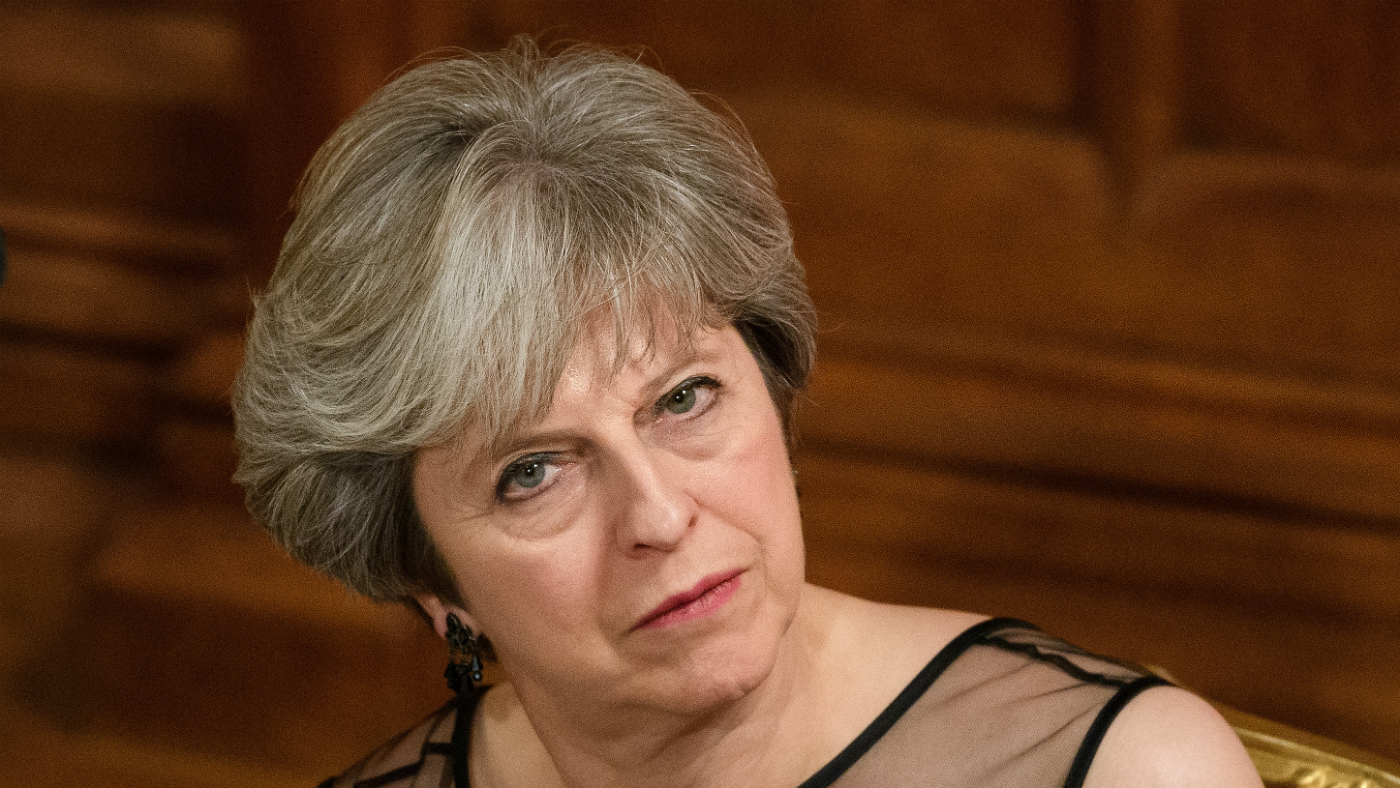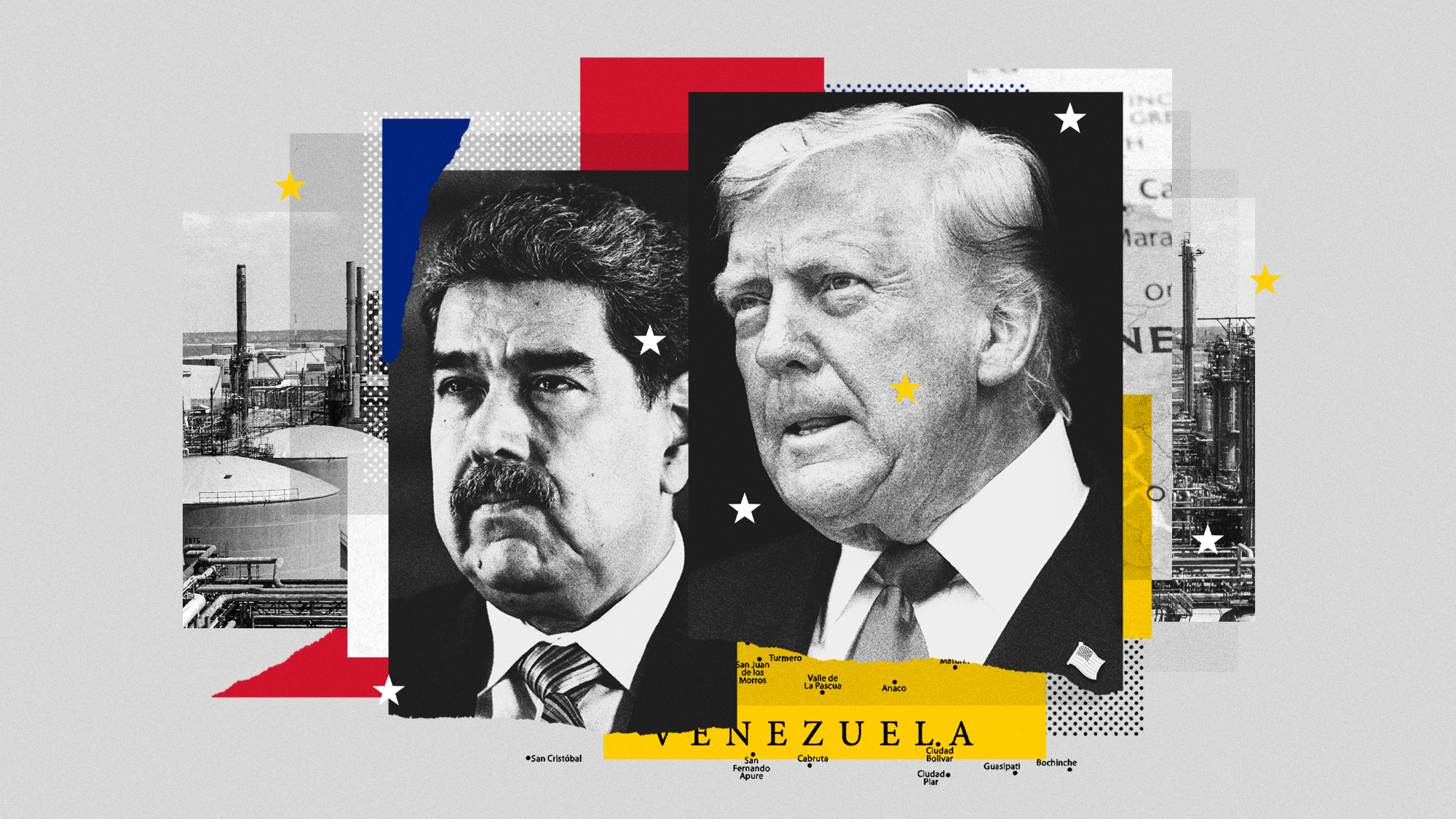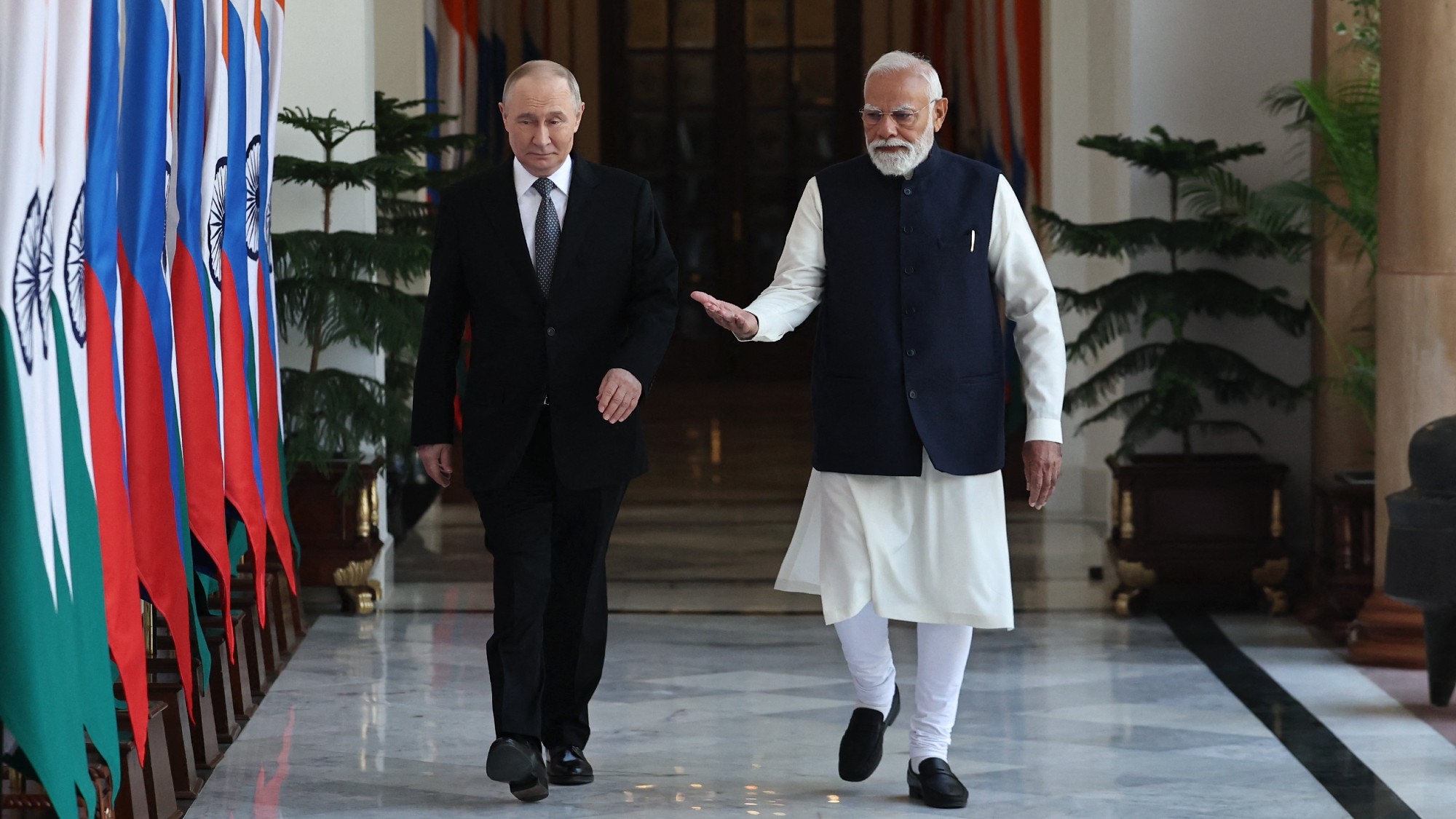Theresa May accuses Vladimir Putin of ‘cyberespionage and disruption’
PM calls out Russia’s plans to ‘sow discord in the West’

A free daily email with the biggest news stories of the day – and the best features from TheWeek.com
You are now subscribed
Your newsletter sign-up was successful
Theresa May has accused Moscow of cyberespionage and meddling in elections worldwide, in what the BBC calls “her strongest attack on Russia yet”.
In a speech at the annual Lord Mayor’s Banquet last night, the Prime Minister claimed that Russia was pursuing its own interests “at any cost”, and warned President Vladimir Putin that “we know what you are doing and you will not succeed”. She also called out Russia’s “sustained campaign of cyberespionage and disruption”.
Her comments are at odds with the stance adopted by US President Donald Trump, says Bloomberg News, who last week said he believed Putin’s denials of involvment in election meddling.
The Week
Escape your echo chamber. Get the facts behind the news, plus analysis from multiple perspectives.

Sign up for The Week's Free Newsletters
From our morning news briefing to a weekly Good News Newsletter, get the best of The Week delivered directly to your inbox.
From our morning news briefing to a weekly Good News Newsletter, get the best of The Week delivered directly to your inbox.
May refuted this, claiming that Russia was “chief among those” who tried to “undermine free societies”. Moscow had been “planting fake stories” to “sow discord in the West”, she said.
May also took aim at Russia’s recent foreign policy decisions, including the country’s annexation of Crimea in 2014 and the recent violations of European airspace.
Foreign Secretary Boris Johnson, whose position is currently under threat following a series of controversies, is due to travel to Russia in the coming months, which the Prime Minister claims “will provide an opportunity to engage with the leadership in the Kremlin”, reports City AM.
“We do not want to return to the Cold War, or to be in a state of perpetual confrontation,” she added.
A free daily email with the biggest news stories of the day – and the best features from TheWeek.com
-
 Switzerland could vote to cap its population
Switzerland could vote to cap its populationUnder the Radar Swiss People’s Party proposes referendum on radical anti-immigration measure to limit residents to 10 million
-
 Political cartoons for February 15
Political cartoons for February 15Cartoons Sunday's political cartoons include political ventriloquism, Europe in the middle, and more
-
 The broken water companies failing England and Wales
The broken water companies failing England and WalesExplainer With rising bills, deteriorating river health and a lack of investment, regulators face an uphill battle to stabilise the industry
-
 How corrupt is the UK?
How corrupt is the UK?The Explainer Decline in standards ‘risks becoming a defining feature of our political culture’ as Britain falls to lowest ever score on global index
-
 Trump’s ‘Board of Peace’ comes into confounding focus
Trump’s ‘Board of Peace’ comes into confounding focusIn the Spotlight What began as a plan to redevelop the Gaza Strip is quickly emerging as a new lever of global power for a president intent on upending the standing world order
-
 The high street: Britain’s next political battleground?
The high street: Britain’s next political battleground?In the Spotlight Mass closure of shops and influx of organised crime are fuelling voter anger, and offer an opening for Reform UK
-
 Trump considers giving Ukraine a security guarantee
Trump considers giving Ukraine a security guaranteeTalking Points Zelenskyy says it is a requirement for peace. Will Putin go along?
-
 What have Trump’s Mar-a-Lago summits achieved?
What have Trump’s Mar-a-Lago summits achieved?Today’s big question Zelenskyy and Netanyahu meet the president in his Palm Beach ‘Winter White House’
-
 Why, really, is Trump going after Venezuela?
Why, really, is Trump going after Venezuela?Talking Points It might be oil, rare minerals or Putin
-
 Moscow cheers Trump’s new ‘America First’ strategy
Moscow cheers Trump’s new ‘America First’ strategyspeed read The president’s national security strategy seeks ‘strategic stability’ with Russia
-
 Is a Putin-Modi love-in a worry for the West?
Is a Putin-Modi love-in a worry for the West?Today’s Big Question The Indian leader is walking a ‘tightrope’ between Russia and the United States